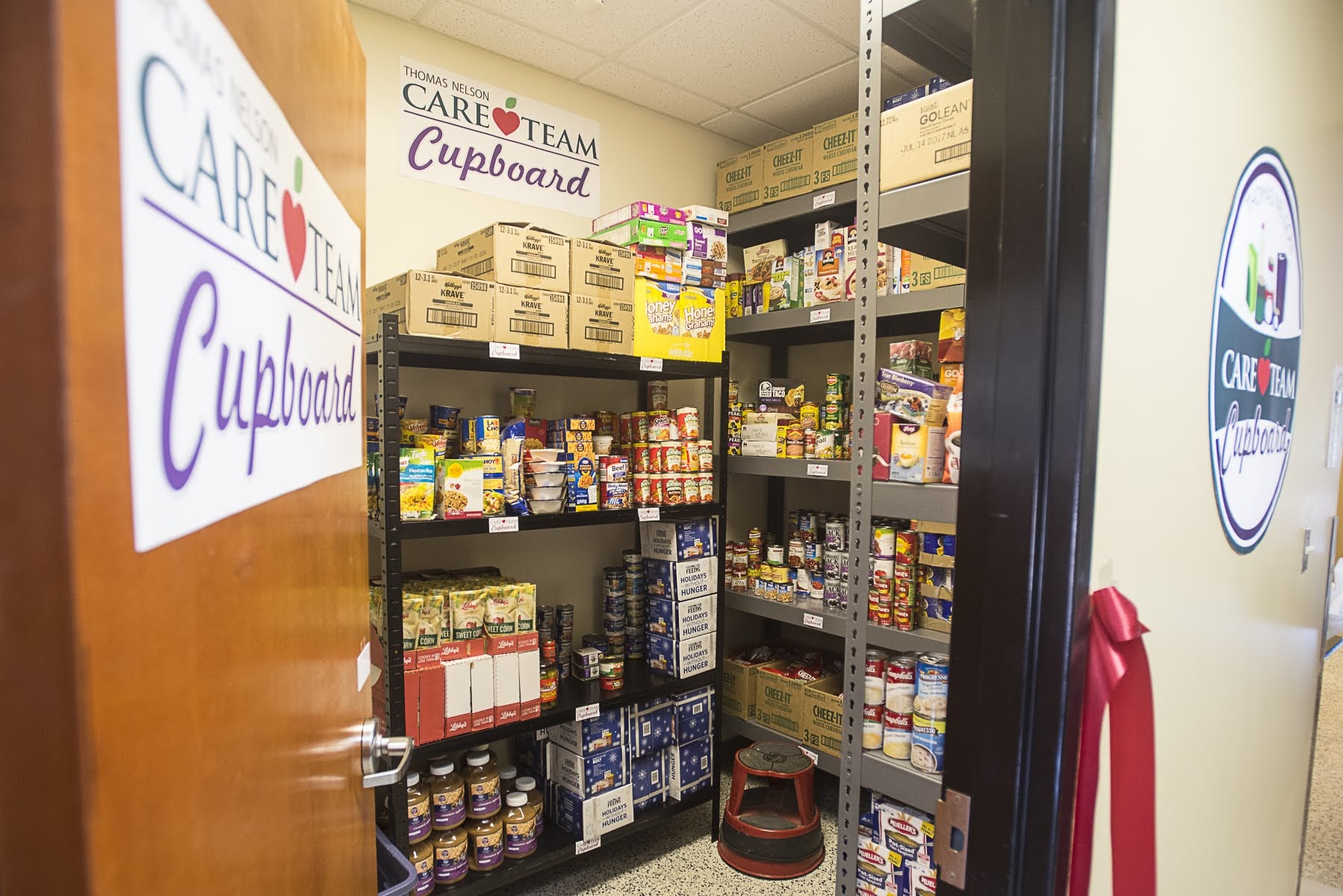Campus Food Pantries Highlighted in Local News

For Albert Williams, a 63-year-old human services student at Thomas Nelson Community College, buying groceries can be a challenge.
He studies full-time and rents a room by himself, doing jobs when he can to make money.
But he's found help through the college's campus food cupboard, stocked with groceries from the Virginia Peninsula Foodbank. For the last three semesters he's stopped once or twice a week to pick up things like peanut butter, jelly or cereal.
"Sometimes, I might not even have something to go home to," Williams said while visiting the cupboard Thursday. "But if I come to the pantry, I can get myself some snacks to hold me over until I'm able to get something."
Williams is one of just dozens of people who pick up food every week at cupboards at the college's Hampton and Historic Triangle campuses. In November, the cupboard helped 700 people - an all-time high.
According to a 2016 survey conducted by a coalition of student anti-hunger groups, about one in four community college students qualify as very food insecure. Only about 20% of four-year college students are food insecure.
"Back when I was in high school, I was able to get free lunches because of my mom - a single mom, low-income," said Richard Hurst, a disability support services counselor with TNCC's office of student services. He also buys the food for the cupboard from the food bank.
"That doesn't change when you go to college. You're still a single-parent household when you go to college. You went from having free lunch, maybe breakfast or something, to now, nothing."
Difficulty paying for food, or when students need to also work, affects graduation rates. For the Virginia Community College System, which is struggling with declining enrollment during a strong economy, that's a critical issue.
Only about 27% of full-time students who started at Virginia community colleges in fall 2014 completed their programs within 150% of the normal time for the program, according to system statistics.
